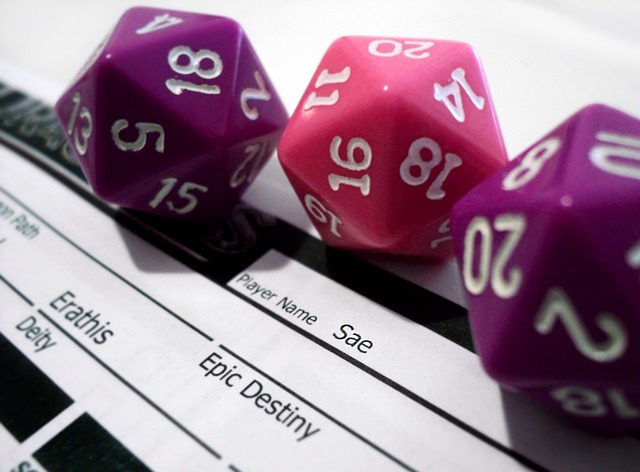By Andrew Agney
Many people in the world hear about tabletop gaming and think it’s some kind of obscure, nerdy hobby, and while everyone can have their own opinions, I think tabletop gaming is something most people might enjoy. It spawns an outlet where everyone can be creative and let their imaginations run wild in a way that no other form of media can. To demonstrate my point, and hopefully convince you to give tabletop gaming a chance, I’m going to go over the various games I’ve played and my experiences with them, starting with the most popular and widely known game, Dungeons & Dragons.
Starting in 1974, the Dungeons and Dragons game, referred to as D&D, is now up to its fifth edition. This is sometimes referred to as 5e, with each new edition having changes to rules, classes, and abilities while keeping the same general fantasy theme between each version.
In D&D, players create characters that are known as adventurers. They start at level one, where they’re just fixing some small town’s issues, such as a goblin infestation. Hopefully, they can reach up to the maximum level of 20, where they’re tasked with stopping world-ending threats.
To create a character, the player must first choose their race. The chosen species then determines benefits.
Second, they determine a class. There are many to choose from, but it boils down to whether the player wishes to swing a sword, cast magic, wield the holy power of their chosen deity, or shapeshift.
Next, players must determine their abilities, a set of numbers that dictate how good they are at various fields of life. The abilities consist of the following categories: strength, a measure of your character’s physical power; dexterity, a measure of your character’s agility and how well they can dodge or sneak; constitution, a measure of your character’s physical heartiness and ability to fend off disease; intelligence, how smart and knowledgeable your character is; wisdom, your character’s street smarts, or ability to read people and see through trickery; and charisma, a mix of your character’s natural charm and how well they can bend magic to fulfill their whim.
Once the character is made, they’re ready to start adventuring. You may be wondering, how do you play? Well, it’s quite simple. The Dungeon Master, or DM, will explain the situation that your character is currently in and you describe how they handle said situation. If there is a chance that you could fail that reaction, the DM may ask you to roll dice to determine the outcome of your attempt. Typically they will ask you to roll a single 20-sided die, referred to as 1d20. Once you roll the die, you add your applicable ability to that roll (for example: for pushing a boulder, you would roll a 1d20 then add your strength.)
Based on the result, the DM will tell you if you succeeded or failed.
And that’s all the basics about D&D that you really need to get started. If you are interested in joining a group and playing D&D, you could try visiting your local game/comic shop and asking if they have any groups looking for players; there are also online groups that play over programs like Discord or Roll20, or you could just pick up the basic rulebook for yourself free online and grab a couple of your friends!




